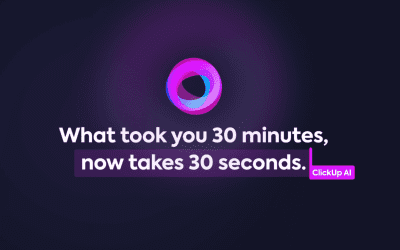
Summary: Believe it or not, those of us working in IT, software dev, or anything reliant upon cloud technology/internet have a tremendous environmental impact. According to the MIT Press, a single data center can consume the equivalent electricity of 50,000 homes. At 200 terawatt hours (TWh) annually, data centers collectively devour more energy than some nation-states. This Earth Day (and every day), the Tuck team is committed to finding ways maximize the impact of our project management work while minimizing the impact of the technology we use to do it.
5 Strategies for a Smaller Energy Footprint
Tuck is a consulting firm focused on project management; of course we’re going to apply project management principles to address this problem. For Tuck consultants and clients, energy waste comes in the form of misallocated effort and time spent online. The way we check our email, manage documents, and even how we run our workstations have an impact on the environment.
Here are five strategies for minimizing the carbon footprint we leave behind as an IT-reliant business.
Practice Good IT Hygiene
Good IT hygiene means keeping your workspaces (both physical and digital) free of clutter, needless processes, and of course, viruses. On the digital front, deleting emails regularly keeps your inbox easier to use. Imagine how much cloud storage space the US workforce could save every year if we did this! On a personal level, minimizing screen time on your laptop and mobile devices saves energy and actually helps you sleep (and think) better! Finally, turning off your workstation at the end of the workday makes it easier to disconnect, lets your OS run updates, and saves electricity
Reduce In-Person Meetings
Tuck has a 100% remote workforce, and we’d like to think that we’re saving ourselves (and clients) thousands of commuting miles, not to mention the time needed to commute every weekday. But even while working remotely, there’s an opportunity to decrease our environmental footprint. In-person meetings impose a burden of bandwidth (both digital and emotional) on participants, so we try to make ours less frequent but more effective. Send out a detailed agenda and expected level of participation by attendees adds value to every minute spent on mic/camera. Also, budgeting time for colleagues to connect on non-work topics makes it easier to segue into the important stuff.
Consolidate Documentation
Most of our clients use cloud storage to handle their knowledge management needs. Since most cloud plans feel unlimited in terms of how much documentation users may store, we have to build some self-imposed guardrails. The easiest way to start this practice is creating three basic categories for documents: Archive, Delete, and Operationalize. The titles are pretty self-explanatory 😉
Uncover Redundancies
Most office productivity software comes as a SaaS now. Adding a new round of licenses requires a few keystrokes, and the annual cost of each one is less apparent when they are billed monthly. Moreover, SaaS pricing can be very confusing – free trials and temporary discounts can mask the total cost and burden of adding new tools. Right now, it’s very easy for your technology stack to grow out of control. Gartner estimates that up to 32% of a companies’ cloud spend may be going to waste. The best way to stop this is to make a conscious effort to re-evaluate your tech stack on an regular basis, and to choose tools that can serve multiple functions well. Since we’re one of ClickUp’s top professional services partners, it’s no surprise that we use ClickUp to publish contracts, manage invoices, and store project artifacts and playbooks for our internal and client-facing teams. That’s in addition to its amazing feature set as a project management tool. Every use case that we’ve listed could be addressed by a specific software, but we save cloud space, internet bandwidth, and license fees by doing it all with ClickUp. We’d love to show you how, too.
Promote Digital Literacy
While many orgs in the IT space assume that team members are already digitally literate, the truth is that we call come with different levels of preparation on how to use tech effectively and appropriately. True digital literacy includes the ability to think critically, behave ethically, and accept social responsibility for the content that we put online. It’s important for orgs to establish a standard of conduct for how team members use tools and enforce that standard. Idle browsing, posting inappropriate content using company resources, or falling for email phishing attempts all stem from a lack of digital literacy within the offender’s org. A comprehensive onboarding policy and regular trainings can prevent such occurrences. And it goes without saying that less misuse of company tech means less bandwidth and server cycles wasted.
About Us
Tuck Consulting Group is a values-driven firm focused on enhancing the project management capabilities of nonprofit organizations and small businesses. Our consultants thrive on dynamic, challenging engagements with clients whose missions align with our own: creating a better world and better outcomes for ourselves and for our neighbors.
Book a call with our founder, Alex Tuck, to learn more about how we can collaborate with your team to make your organization a leaner, greener, and more satisfying place to work.

Andrew Guidarelli
Strategy & Partnerships
Andrew has been with Tuck since March 2021. He’s responsible for managing and sustaining relationships with vendors, clients, and teammates. He’s constantly searching out ways to establish collaborative relationships with new partners that support mutual growth and development for both parties.


